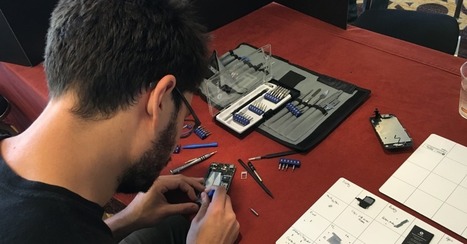Six months ago, I wrote some thoughts on the paradigm shift in how museums think about the balance between preserving an artwork and sharing it with the public. My conclusion was this: time-based media art installations do not truly exist until they are installed and, thus, these works must be exhibited — or “exercised” — with a certain degree of regularity.
This is a concept first championed in the conservation field over a decade ago, by Pip Laurenson of Tate. Lovers, by Japanese media artist Teiji Furuhashi(1960–1995), is an excellent example of this. What follows is the story of how our team rescued this important example of early-1990s Japanese media art from a crumbling foundation of obsolete technologies (MS-DOS and LaserDisc, for starters) and ensured that it will live on so that generations long into the future are able to discover and enjoy it.
In museums, where the work of the conservator is often dictated by what is scheduled for exhibition, it is unusual to have the opportunity to conduct in-depth research or conservation treatments on collection works that are not slated to appear in the galleries. There is, however, a rich tradition at The Museum of Modern Art of offsetting this trend through collaborations with academics and researchers. Through this, we are often able to build small-scale research projects that give students incredible real-world experience — and afford museum conservators the sort of research we wish we had more time for...



 Your new post is loading...
Your new post is loading...











